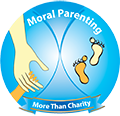The educational system in Bangladesh is three-tiered and highly subsidized. The government of Bangladesh operates many schools in the primary, secondary, and higher secondary levels. It also subsidizes parts of the funding for many private schools.
The three main educational systems in Bangladesh, ordered by decreasing student numbers, are:
- General Education System
- Madrasah Education System
- Technical – Vocational Education System
Each of these three main systems is divided into five levels:
- Primary Level (years 1 to 5)
- Junior Level (years 6 to 8)
- Secondary Level (years 9 to 10)
- Higher Secondary Level (years 11 and 12)
- University Level (years 13 and 16)
Each of first four levels is completed by nationwide final examination; namely, Primary School Certificate (PSC), Junior School Certificate (JSC), Secondary School Certificate (SSC), Higher Secondary Certificate (HSC). At all levels of schooling, students can choose to receive their education in English or Bangla. Private schools tend to make use of English-based study media while government-sponsored schools use Bangla.
In spite of providing many incentives by the government and initiatives of the NGO’s, the dropout rate in Bangladesh is still very high. A recent study in rural Bangladesh, assisted by a US-based NGO, Volunteers Association for Bangladesh (VAB), presents detailed data on the dropout rate in each class from VI to X over a period of six years. Research reveals a trend of dropout starting at a slower pace of about 9-10 percent at Class VI, rising slowly to Class IX and ending with a ‘bang’ of around 60 to 70 percent at Class X. The study confirms the prevailing views about the main reasons for dropout as being poverty and poverty related factors. This study also mentioned that the scholarship program for the deprived students could reduce the dropout rate up to thirty percent.
In our personal experience, some students are naturally meritorious, they have high ambitious, they are trying hard to continue the study. Sometimes they do part time job to support their family and bear the educational expenditure. The education fees are low enough compared to the developed countries of the word; however, the poor family cannot bear it as they are always fighting for their food, cloth, shelter etc. The Moral Parenting project mainly focused those naturally meritorious students of poor families.
